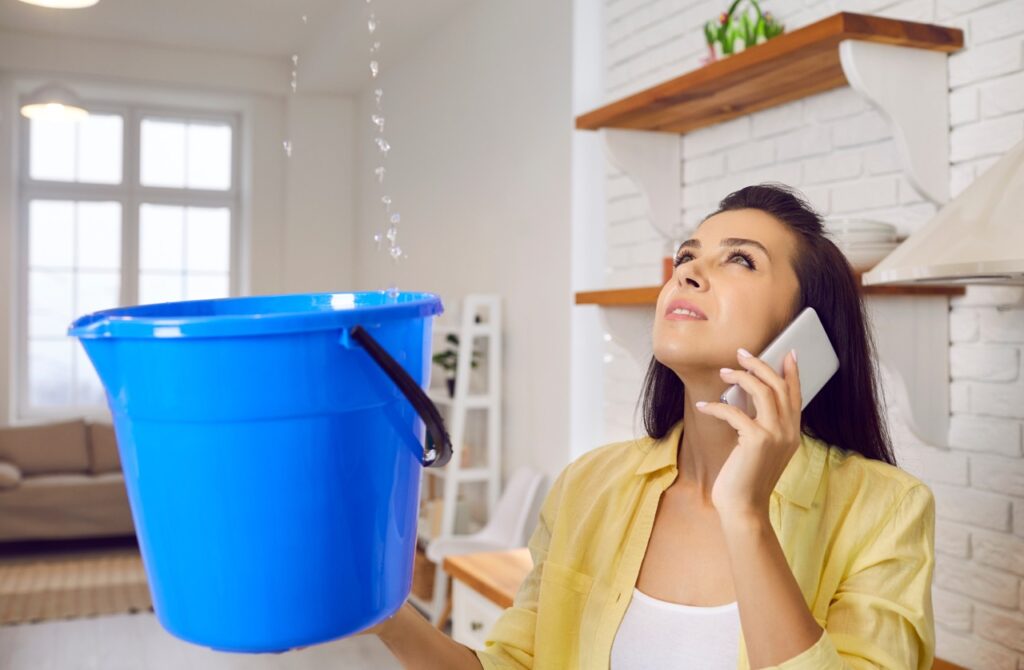As a renter, what maintenance is your responsibility, and what maintenance falls on the landlord or property management company? Furthermore, what maintenance is considered an emergency, and what can wait until regular business hours?
The habitability of a property is an important part of any rental agreement. Rental properties must meet certain requirements to ensure the health and well-being of those who live there. But, sometimes when something goes wrong, it’s not a habitability issue and does not need to be addressed immediately. But where is the line drawn? Rhino Property Management explains some of the ins and outs of emergency maintenance.
Property Management Maintenance Emergencies
A maintenance emergency is a problem in a rental that could lead to personal harm or injury, or substantial damage to the property. A small leak under the sink is an inconvenience, but it does not constitute a maintenance emergency right away.
However, if the small leak is left unattended and promotes mold growth, that may be considered a maintenance emergency, especially if tenants have existing respiratory issues that could be exacerbated by mold.
More cut-and-dry maintenance emergencies that should be immediately addressed by the landlord or property management company include:
- Building Code Violations
- Fire
- Flood
- Gas Leak
- Carbon Monoxide Detection
- Loss of Power
- Loss of Water
Of course, if the power outage or lack of water is due to circumstances beyond the homeowner’s control (like a downed power line or burst city pipe), renters cannot expect the landlord to remedy the situation themselves. So while it is an emergency, it may not be the landlord’s responsibility to put renters into temporary lodgings until the situation is resolved.
Building code violations can vary depending on the type of home you’re in, such as a single-family house versus an apartment unit. Do some research to see if things such as broken windows, broken handrails, or electrical problems are code violations where you live.
Possible Property Management Maintenance Emergencies
Depending on the circumstances, a loss of heat or air conditioning could present as an emergency. If the furnace or AC unit fails, the maintenance may need to be performed after-hours to ensure habitable conditions for the renters.
Sometimes, though, air conditioning is not considered a requirement for habitability. Be sure that, as a renter, you have read through your lease agreement and know what the plan is if your home’s AC fails, even in the summer.
Other possible emergencies:
- Broken Appliances
- Broken Elevator (in rental apartments)
- Damaged Locks (windows and doors)
- Pests
Dead batteries in smoke and carbon monoxide detectors can become an emergency if ignored, but that doesn’t mean it’s the landlord’s responsibility to replace them. Your rental agreement should indicate who is responsible for changing detector batteries. If you need assistance from the landlord or property manager, it may not be free to have them respond to your request. If you ever have questions about maintenance responsibilities, open the lines of communication with your landlord or property manager before the problems arise.
Non-Emergency Maintenance
It’s possible that non-emergency maintenance can quickly turn into an emergency but, for the most part, the following are not considered emergencies. So while a maintenance request should be submitted to the landlord or property management company, it may not be addressed outside regular business hours.
- Broken Sprinkler Lines/Heads
- Burned Out Lightbulbs
- Clogged Pipes
- Leaky Faucet
- Running Toilet
Submitting Maintenance Requests to Property Management
Every landlord and property manager should have a way for you to submit written maintenance requests. Doing so provides accountability for the property manager as it shows a record of when the request was made.
If it’s an emergency request, you may have an after-hours number to call for assistance. It may still be in your best interest to follow up with an email to detail the phone call and what is going on.
Sometimes an issue was present at the time you moved in; this may not mean the landlord knows about it already, though. Do a thorough walkthrough of your home to note any maintenance concerns you have, and then submit them in writing. This will not only put the issues on record but will offer a good comparison of the property’s condition when you move out.
DON’T STOP PAYING RENT
Keep paying your rent even if you feel your maintenance requests aren’t being addressed the way you want. Unless you file a “Notice of Deficient Conditions,” you are still legally obligated to pay monthly rent and any utilities as dictated by your lease.

